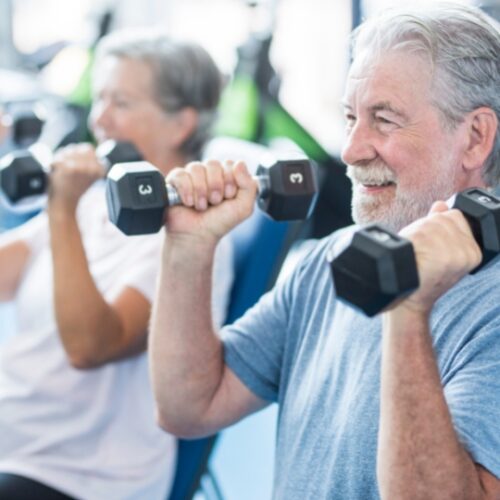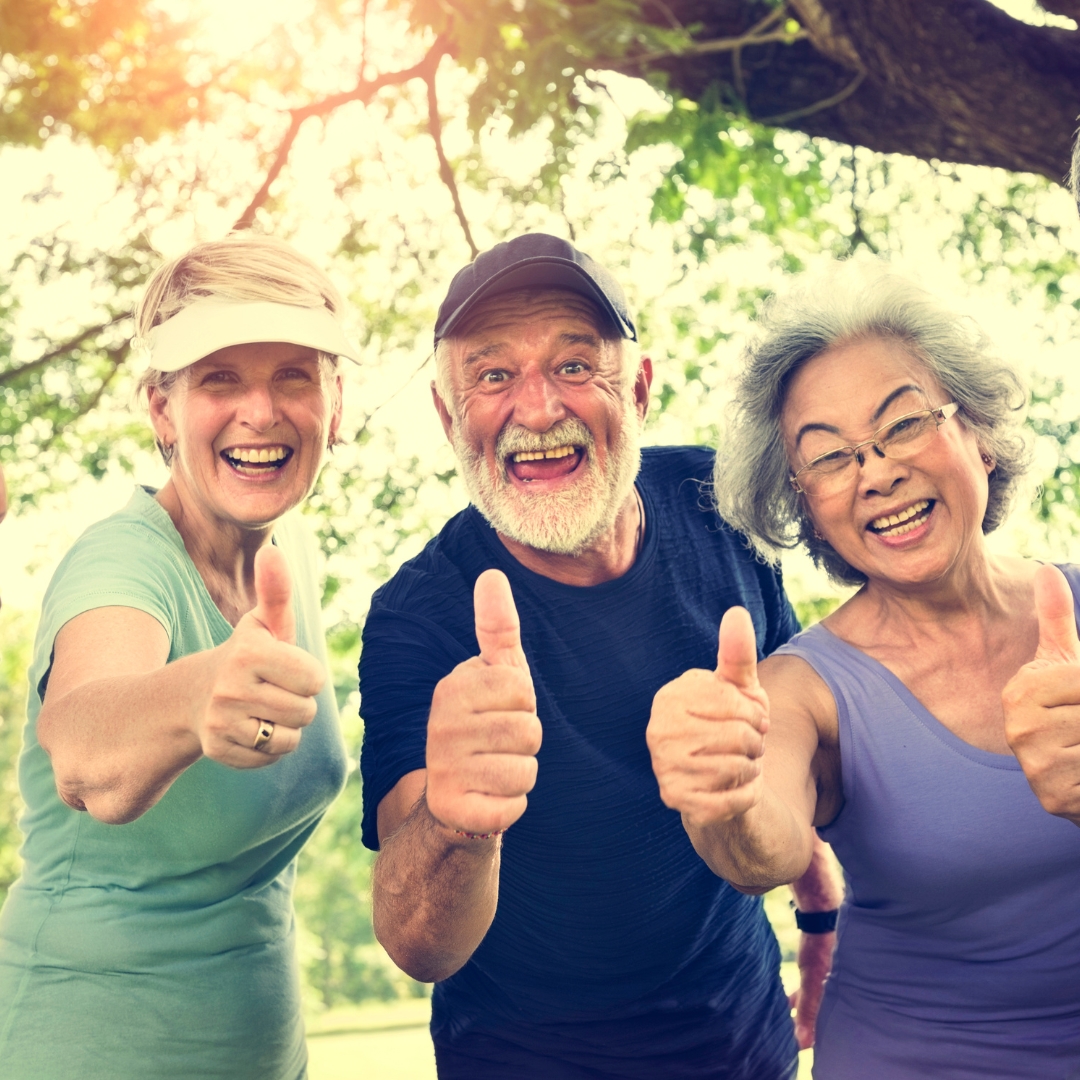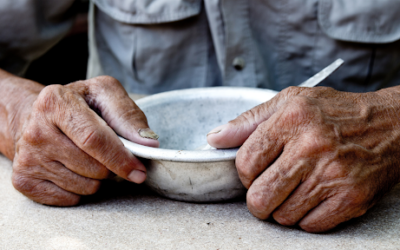This Blog Was Updated In June 2023
Exercise is an essential aspect of life for people of all ages. Regular physical movement has proven benefits in many parts of a person’s life, from joint health to improved cognitive function. And exercising regularly is especially important for seniors.
As we age, our bodies change, and so do our needs. Seniors are at exceptionally high risk of developing new health problems, losing muscle mass, decreased stamina, and injury from falls. All of these problems make starting and maintaining an exercise habit more difficult. They also make living independently a challenge.
It can take a lot of work for seniors to incorporate regular exercise into their routines. This is especially true if they cope with limited mobility or chronic health problems. But luckily, even 5 to 10 minutes of movement can produce noticeable health benefits and help jumpstart an exercise plan for seniors that will allow them to live more independent and healthy lives.
The Benefits of Regular Exercise
There are many proven benefits to regular exercise, especially for seniors. These benefits include physical and mental health. A little exercise can go a long way to helping seniors manage current health problems and prevent more significant issues down the road.
Improve General Health
A regular exercise plan can help to improve a person’s overall immune function and help to prevent many health problems, including colon cancer and diabetes. An exercise plan is a great idea even for those in good health because it can have many short and long-term benefits. Building good habits now may prevent future health problems, but it will also make it easier to maintain an exercise plan if a senior’s health goes downhill.
Improve Heart Health
Aerobic exercises, such as walking, jogging, swimming, or biking, can also help to increase the heart’s efficiency and improve its capacity to pump blood, thereby ensuring a healthy oxygen supply to the body’s cells. Not only does this assist with maintaining a normal heart rhythm, but it also strengthens the heart muscle, reducing the likelihood of heart failure. Moreover, engaging in regular physical activity helps manage cholesterol levels, reducing LDL (bad cholesterol) and increasing HDL (good cholesterol). It’s important to start gradually and increase the intensity of exercise over time under a healthcare provider’s guidance. This approach to improving heart health can lead to better overall stamina, increased life expectancy, and a higher quality of life in senior years.
Improve Bone and Joint Health
Weight-bearing exercises, such as walking, jogging, or weightlifting, play a crucial role in preserving bone density and preventing osteoporosis, a condition common in seniors leading to brittle and fragile bones. Regular, moderate exercise can also enhance muscle strength and flexibility, stabilizing the joints and reducing the risk of injury. Furthermore, for seniors suffering from arthritis, carefully designed physical activity can improve their range of motion, promoting a better quality of life. Engaging in exercises like yoga or Tai Chi can also improve balance and coordination, thereby preventing falls which can cause serious injuries in seniors. It’s important, however, to consult with a physician or physiotherapist to tailor an exercise regimen suitable to individual capabilities and health conditions. Regular exercise combined with a healthy diet rich in calcium and vitamin D can significantly boost overall bone and joint health.
Improve Muscle Health
Muscle health is pivotal for overall fitness and functional mobility, particularly for seniors. Regular strength training can help counteract the natural loss of muscle mass and function that comes with aging, a process known as sarcopenia. These exercises improve muscle strength and enhance muscle endurance, power, and size. This leads to improved performance in daily activities such as climbing stairs, carrying groceries, or standing up from a chair. Additionally, increased muscle mass results in a higher metabolic rate, which can assist with weight management and controlling blood sugar levels, thus reducing the risk of developing type 2 diabetes. Incorporating resistance bands, free weights, or body-weight exercises into a regular fitness routine can significantly boost muscle health. It’s crucial, however, to maintain proper form and technique during strength training to avoid injuries and to always consult a fitness professional to devise a suitable and safe workout plan.
Improve Balance
Exercises that focus on balance can significantly reduce seniors’ risk of falls by improving their body’s proprioception or the awareness of their body’s position in space. Such exercises involve coordination and engage multiple muscle groups simultaneously, leading to improved stability and agility. Once again, activities like Tai Chi, yoga, or even simple exercises like standing on one leg or walking heel-to-toe can be quite beneficial.
Furthermore, balance training also improves reflexes and reaction times, allowing seniors to respond better and stabilize themselves if they begin to trip or stumble. Along with strength training, balance exercises can enhance seniors’ overall mobility, confidence, and independence, thereby contributing to a better quality of life. As always, it’s advisable to undertake such exercises under the guidance of a trained professional to ensure safety and effectiveness. The combination of strength and balance exercises can provide a comprehensive approach to preventing falls and related injuries in seniors.
Improve Cognitive Health
The benefits of regular physical activity on cognitive health extend beyond just memory preservation. Research suggests that consistent aerobic exercise can enhance various cognitive functions, including attention, processing speed, and executive functions like planning and multitasking. This is largely because exercise stimulates the release of growth factors, chemicals in the brain that affect the health of brain cells, the growth of new blood vessels in the brain, and even the abundance and survival of new brain cells.
Moreover, exercise can improve mood and sleep and reduce stress and anxiety, which can all be contributors to cognitive impairment in seniors. Regular physical activity also promotes better blood flow, improving brain function and health. Engaging in social activities like group exercises or sports can boost cognitive health by combating feelings of isolation and loneliness. Therefore, a regular fitness regimen can be a powerful tool for maintaining mental sharpness and cognitive resilience as we age.
Improve Emotional Health
Beyond the release of endorphins, regular physical activity can contribute to improved self-esteem and a sense of accomplishment. As individuals notice improvements in their strength, stamina, or flexibility, they often experience a positive shift in their self-perception and confidence, which directly impacts their emotional well-being.
Additionally, exercise serves as an excellent distraction, allowing a break from the cycle of negative thoughts that often feed anxiety and depression. Group activities or fitness classes can also provide social interaction and foster a sense of community, reducing feelings of loneliness and isolation that are common in seniors.
For many, incorporating outdoor exercises can provide the added benefits of fresh air and a connection with nature, which have been shown to have therapeutic effects on mental health. Thus, a consistent exercise routine serves as a holistic approach to enhancing emotional health, fostering resilience, and improving the overall quality of life.
Basic Exercises for Senior Citizens and How to Do Them
Maintaining an active lifestyle is key to healthy aging. Here is a list of exercises that senior citizens can do to improve their overall health and wellbeing:
- Walking: The simplest and most accessible form of exercise, walking requires no special equipment aside from comfortable shoes. Aim for a brisk pace but ensure it’s comfortable for you.
- Chair Exercises: Perfect for those with limited mobility, chair exercises like leg lifts, arm raises, or seated marching can enhance muscle strength and flexibility.
- Tai Chi: This gentle exercise involves slow, controlled movements and deep breathing. Join a class or follow online tutorials. It improves balance, flexibility, and muscle strength.
- Yoga: Modified poses can increase flexibility, balance, and strength. Many yoga studios and community centers offer classes specifically designed for seniors.
- Water Aerobics: Low impact and easy on the joints, water aerobics can help improve cardiovascular health, muscle strength, and flexibility. Look for classes in local pools or community centers.
- Resistance Band Exercises: Resistance bands are versatile, easy to use, and safe. Band pull-apart, seated row, or leg press exercises can enhance muscle strength.
- Strength Training: Simple weightlifting exercises using light dumbbells or even canned goods can build muscle mass and strength. Always start light and gradually increase weight as strength improves.
- Balance Exercises: Stand on one foot, heel-to-toe walk, or leg lifts can improve balance and stability.
- Stretching: Gentle daily stretches can improve flexibility and range of motion. Consider incorporating a routine of head turns, shoulder and arm circles, calf stretches, and seated hamstring stretches.
Remember, it’s important to consult with a healthcare provider before starting any new exercise regimen. Start slowly, listen to your body, and gradually increase the duration and intensity of exercises as your fitness improves. Your body’s capabilities and comfort should always guide your exercise routine.
Why Community is Important
Social support can be crucial to maintaining regular physical activity and is highly beneficial to mental health. Physical limitations can make getting out of the house and maintaining friendships difficult for many seniors. But having a set exercise routine with friends can help strengthen friendships and maintain motivation for exercise. Even a daily walk with friends helps keep a routine going and allows everyone to socialize. Maintaining social ties can be very important to seniors and helps alleviate loneliness and depression.
Many places offer community-based programs focusing on aerobic, strengthening, or flexibility-based exercises for seniors. A community can do a lot for its senior citizens by providing protected locations to walk in all weather, like malls. Many places also provide transportation to parks and facilities that offer exercise programs. Communities connecting with seniors and planning activities that encourage physical activity set their citizens up for success.
Before You Start Your New Routine
Of course, consult a doctor before you or a loved one starts making significant changes to your exercise routine. Talking to a professional is especially important when transitioning from no exercise to a new exercise routine. Easing into any activity can go a long way toward preventing injury. When starting out, modified or low-impact exercises may be the way to go. Keep in mind that everyone is different and has different limits. A professional can help tailor an exercise plan for seniors that acknowledges each individual and their limitations.
Exercise and Healthy Eating go Hand in Hand
A healthy exercise habit is easier to maintain with a well-rounded diet. And our dietary needs change as we grow older. Activity levels, hormones, and metabolism changes lead to different nutritional needs. You should not ignore these changes. Before making any significant changes to a diet or exercise routine, check in with a dietitian and make sure that you and your loved ones are getting all the nutrients you need out of your meals. Healthy eating is essential to a healthy life.
And suppose grocery shopping or cooking healthy meals daily is difficult because of factors like disability or chronic illness. In that case, you may be eligible for our Meals on Wheels of Contra Costa program.
Meal on Wheels of Contra Costa
Meal on Wheels of Contra Costa is a program dedicated to ensuring every senior in our community has access to healthy and nutritious meals. Our senior meal programs deliver food right to the doors of those in need and provide vital community support. We connect with seniors to provide home delivery meals to homebound citizens who cannot go grocery shopping or cook nutritious meals for themselves. Call us today and find out if this program is right for you or your loved ones.






